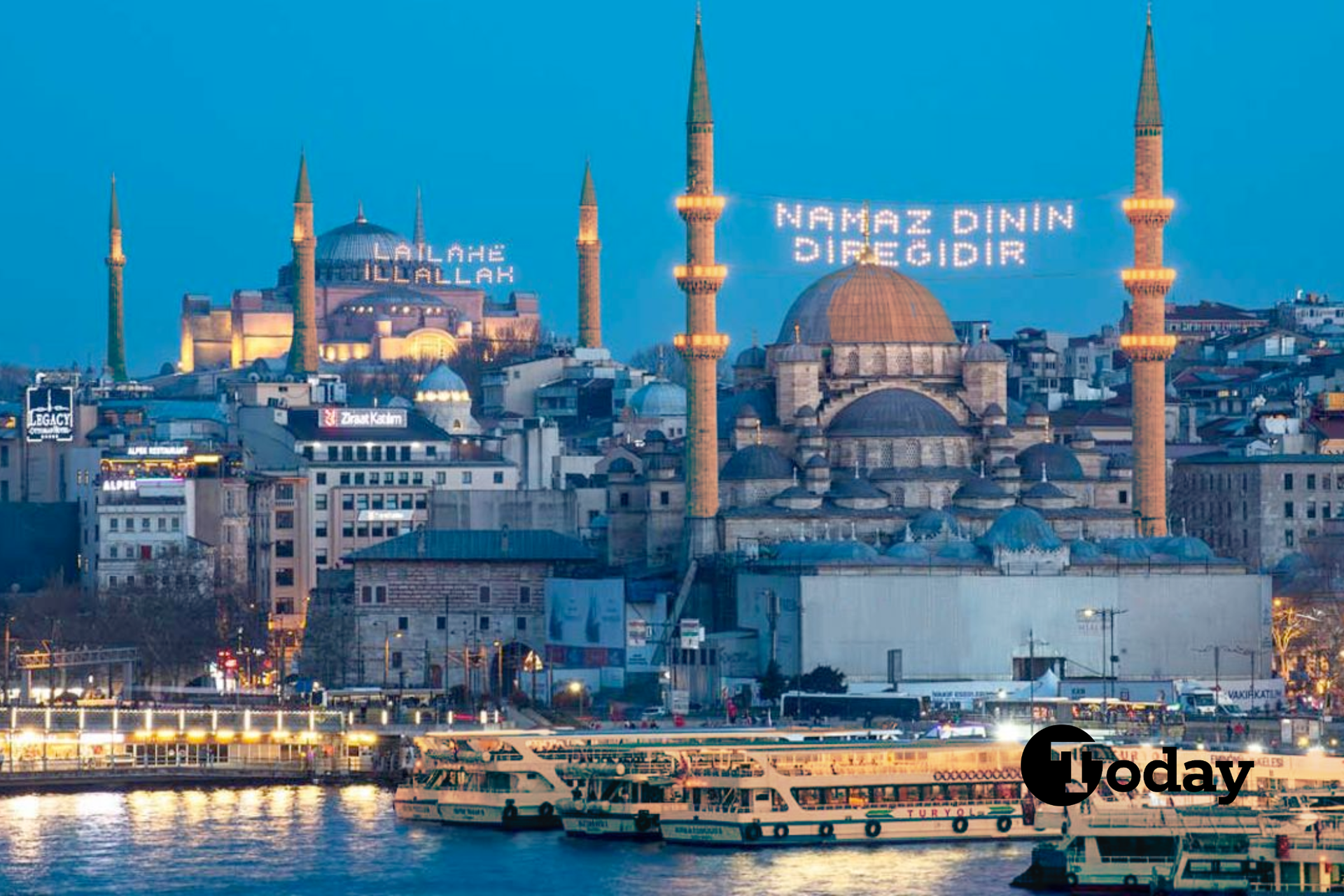
The call to prayer echoes through the evening sky as the sun dips below the horizon. The streets, quiet just moments ago, stir with anticipation. A rhythmic drumbeat breaks the silence, signaling the arrival of another Ramadan in Türkiye.
In bustling neighborhoods and tranquil villages alike, families gather around tables set with warm Ramadan pidesi, fragrant stews, and bowls of glistening dates. The monthlong journey of fasting, reflection, and communal traditions has begun.
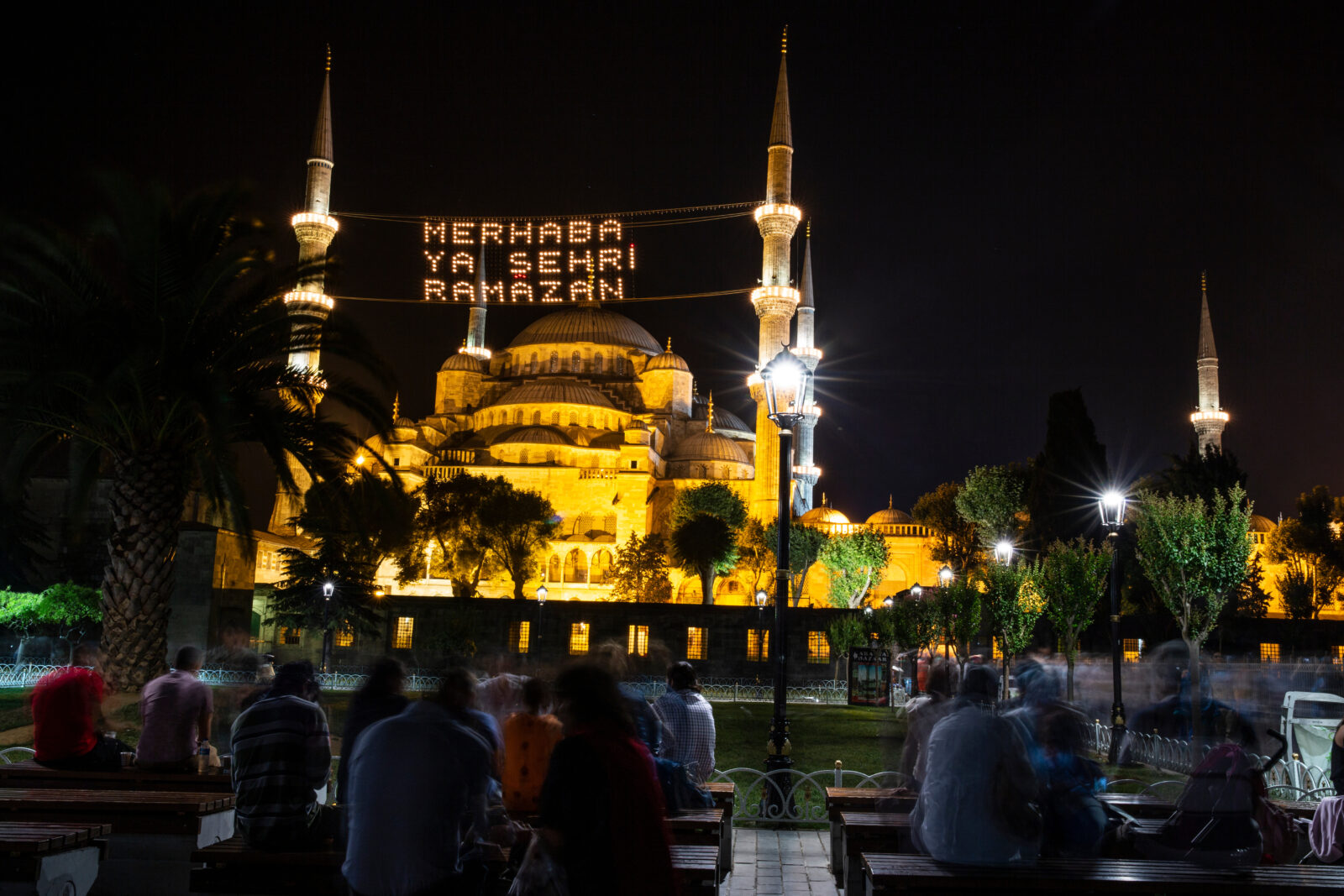
Ramadan is more than a religious observance; it is a time when the fabric of daily life shifts, embracing a rhythm of devotion, generosity, and togetherness. From the pre-dawn meal of sahur to the vibrant iftar (fast-breaking dinner) gatherings at sunset, each day is shaped by customs that have endured for centuries.
The glow of mahya lights strung between mosque minarets illuminates the night, while the distant boom of the iftar cannon signals the breaking of the fast. Ramadan in Türkiye is a blend of the old and the new, where deeply rooted traditions continue to thrive in modern times.
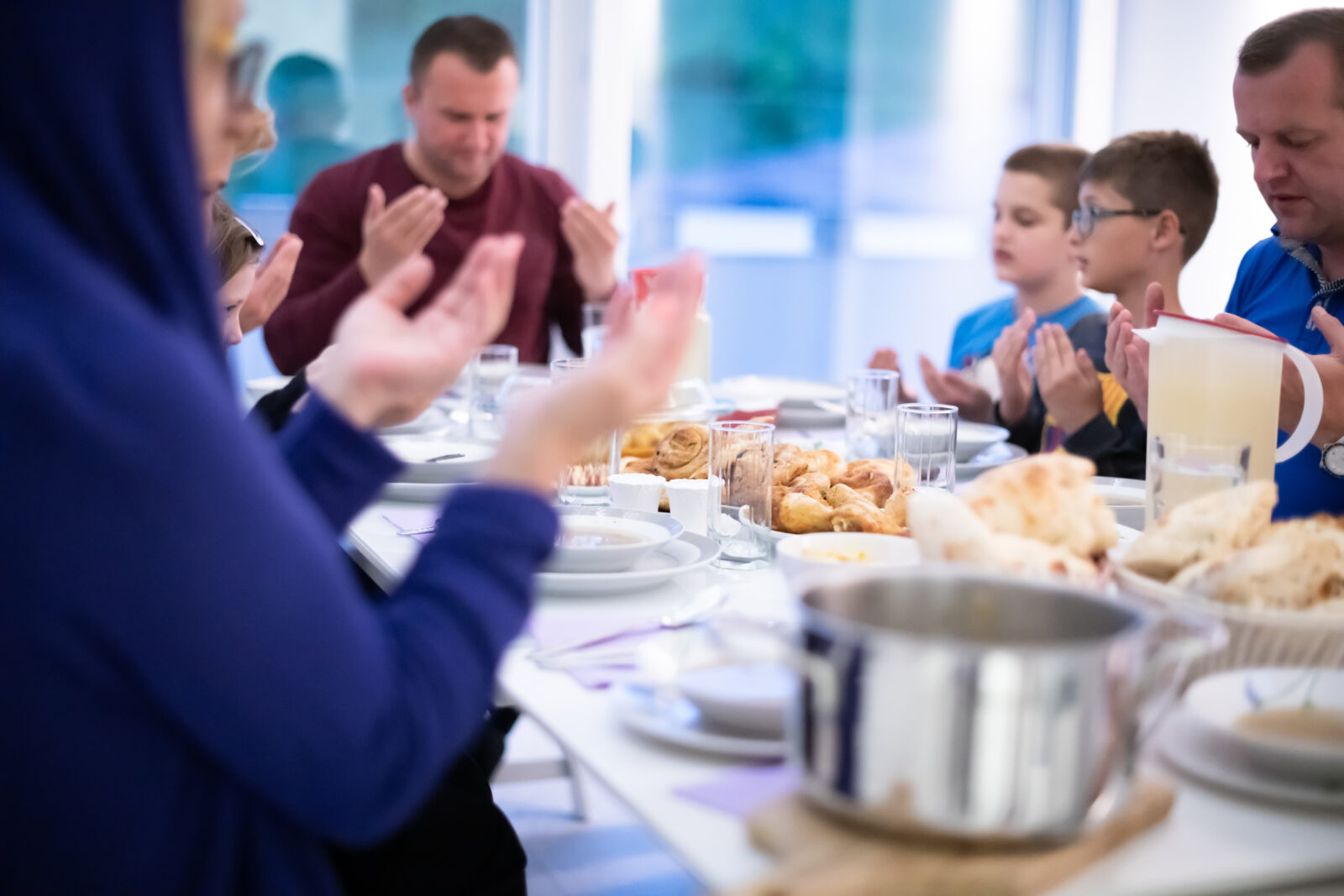
In many Turkish households, preparations for Ramadan begin well before the first day of fasting. Traditionally, homes are thoroughly cleaned in what is known as "Ramadan cleaning."
This practice symbolizes a fresh start, ensuring the house is ready for the holy month. Special attention is given to dining sets, which are often reserved for guests, and kitchens are stocked with essential foods for sahur and iftar.
Markets and bazaars become bustling hubs in the days leading up to Ramadan in Türkiye. Shoppers buy ingredients for traditional dishes, including dates, olives, and lentils.
Ramadan pidesi, a round, soft bread covered in sesame and nigella seeds, is an essential item, and long queues form outside bakeries just before sunset.
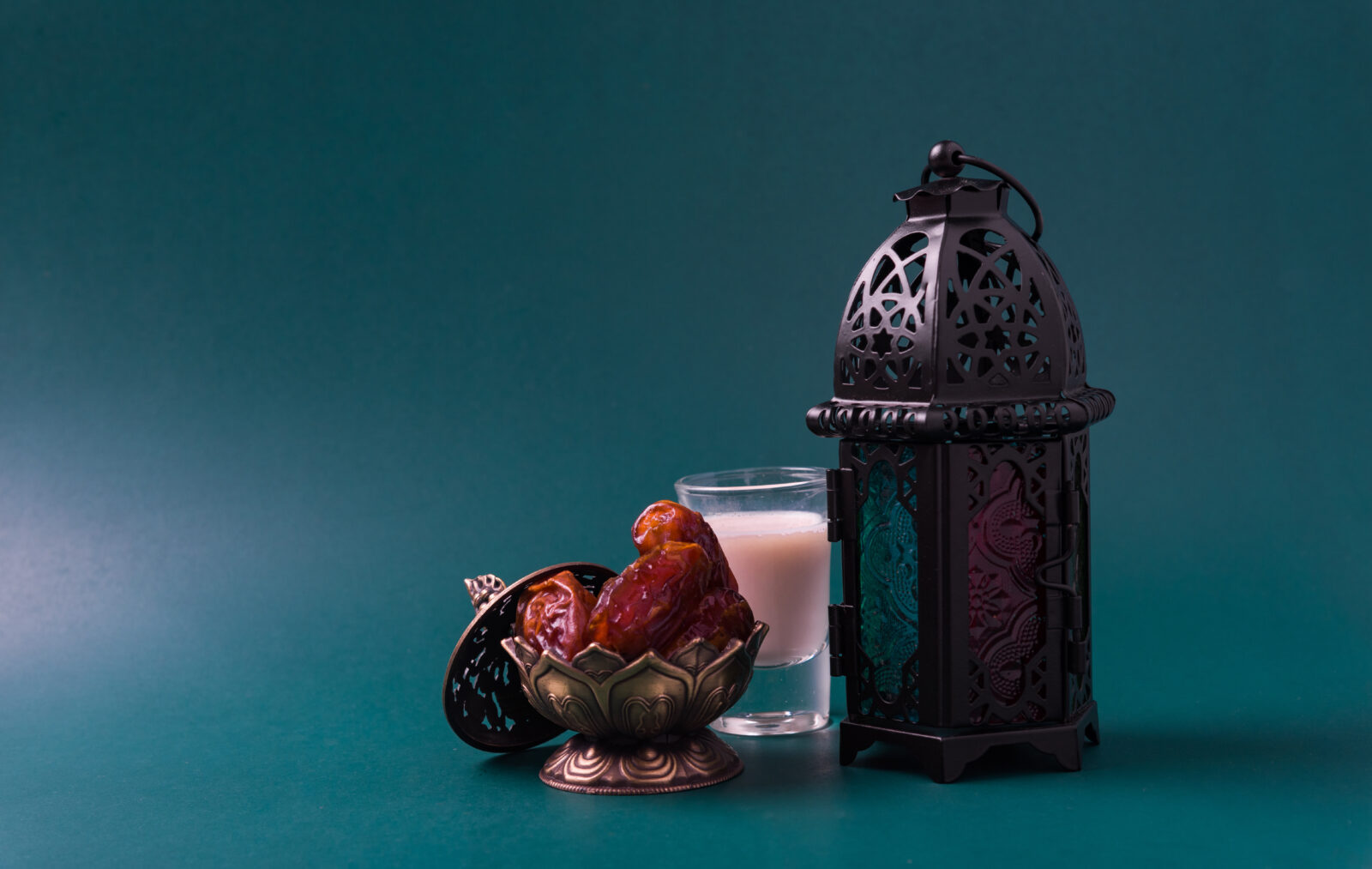
Sahur is an important meal that sustains people throughout the day, and although that has not changed, how believers wake up has.
While alarm clocks and phone reminders have replaced traditional wake-up methods for many, Ramadan drummers still roam the streets before dawn, beating their drums and reciting rhyming couplets to awaken households.
This centuries-old tradition, dating back to the Ottoman period, continues in many neighborhoods. Drummers often receive small tips from residents at the end of the month as a token of appreciation.
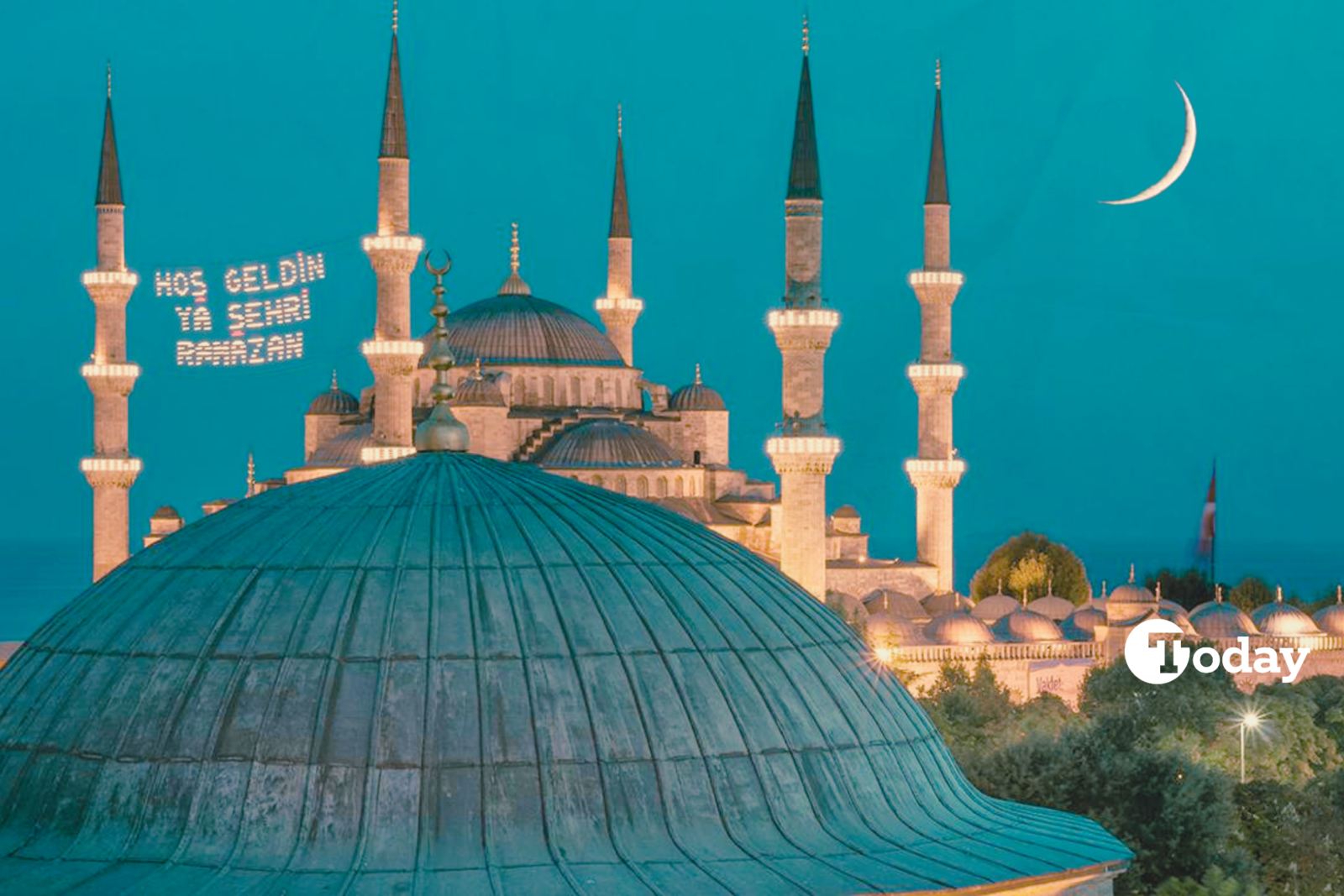
One of the most visually striking traditions of Ramadan in Türkiye is the display of "mahya lights".
These illuminated messages, suspended between the minarets of mosques, convey spiritual and moral messages such as "Welcome Ramadan" or "Peace Be Upon You."
The art of mahya, which dates back to the 17th century, was originally done with oil lamps but is now created using electric bulbs. Istanbul's historic mosques, including the Blue Mosque and Suleymaniye Mosque, display some of the most impressive mahya lights each year.
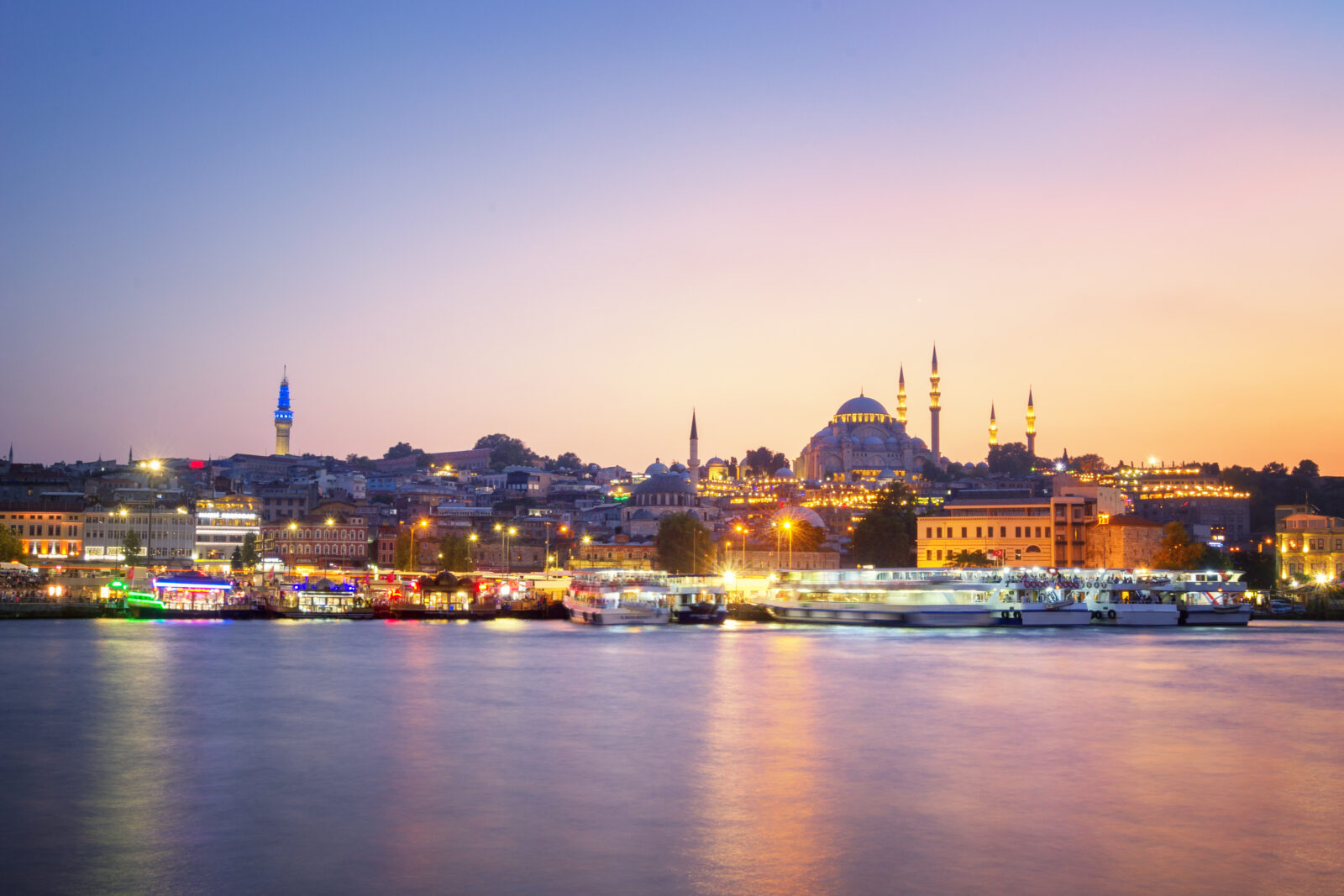
Iftar is a moment of togetherness. Traditionally, people begin with dates and water before moving on to soup and main dishes. Turkish iftar tables are known for their variety, featuring dishes such as lentil soup, stuffed vine leaves, and meat stews.
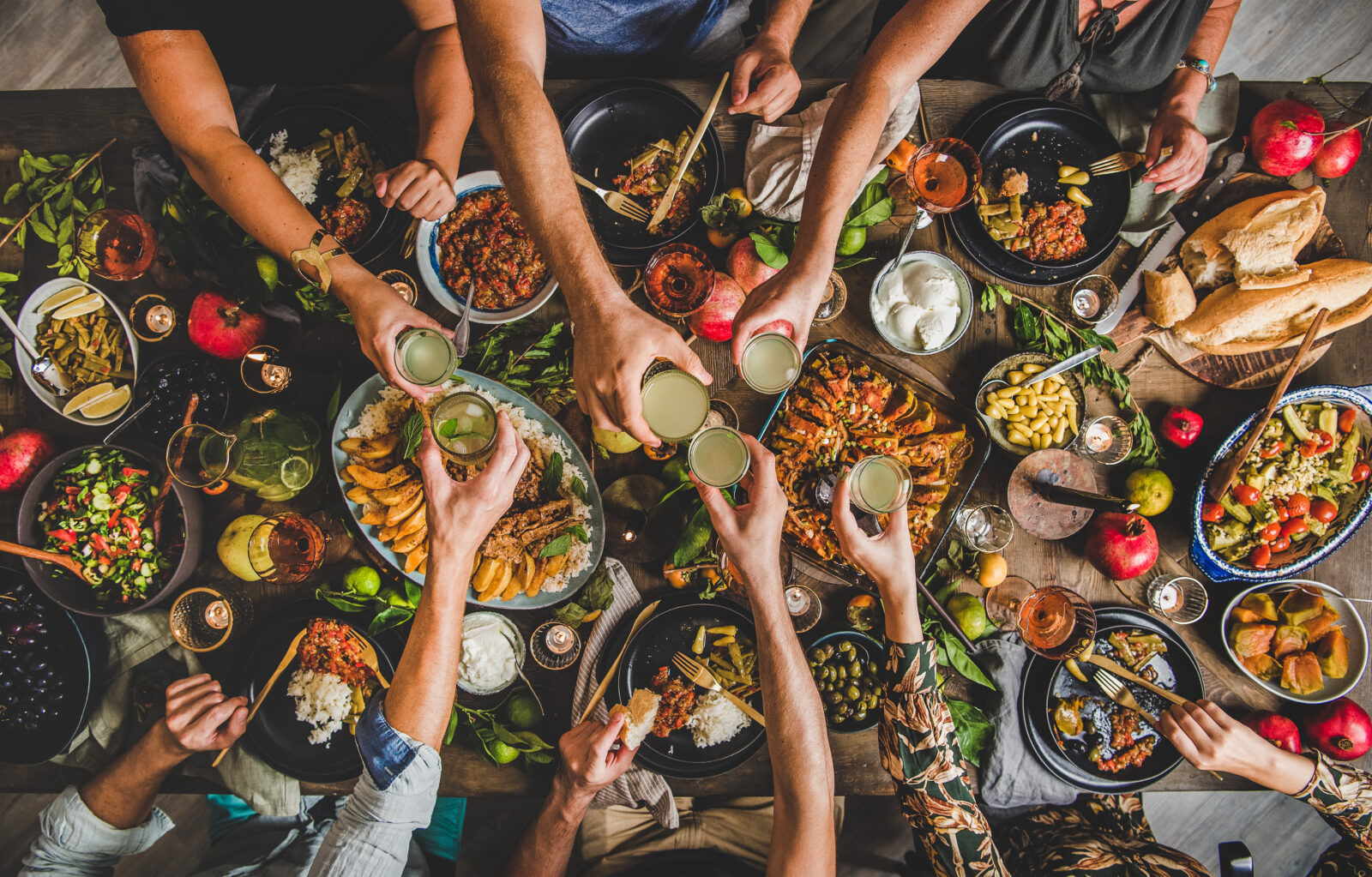
The firing of an iftar cannon is another long-standing tradition. Originally introduced during Ottoman rule, this practice alerts people to the time of breaking the fast. While mosques now announce the call to prayer via loudspeakers, the symbolic firing of the cannon remains an integral part of Ramadan in some cities.
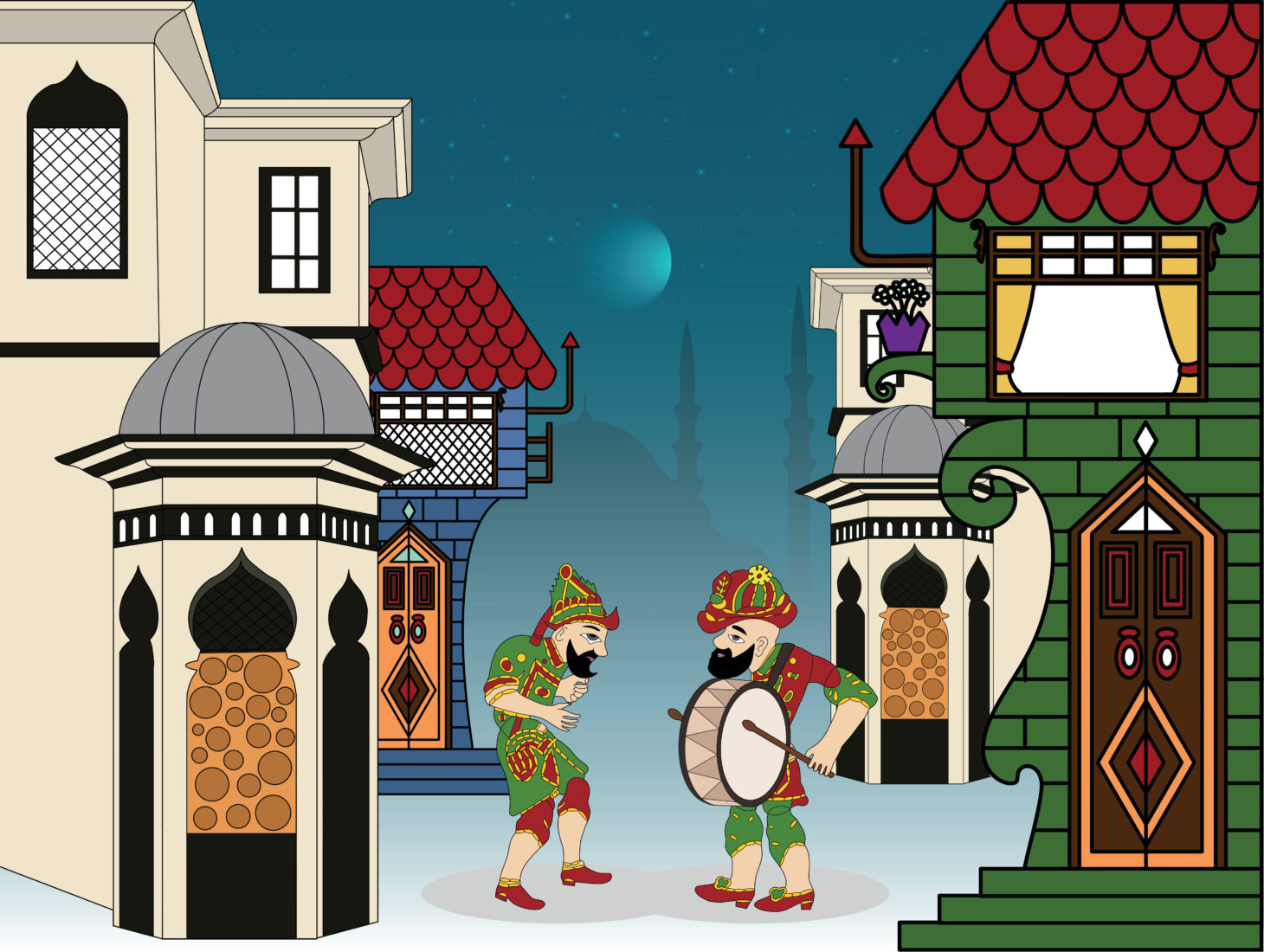
Following iftar, many people head to mosques for Tarawih prayers during Ramadan in Türkiye.
While fasting is obligatory for adults, children are encouraged to participate in a modified version called tekne orucu (boat fasting).
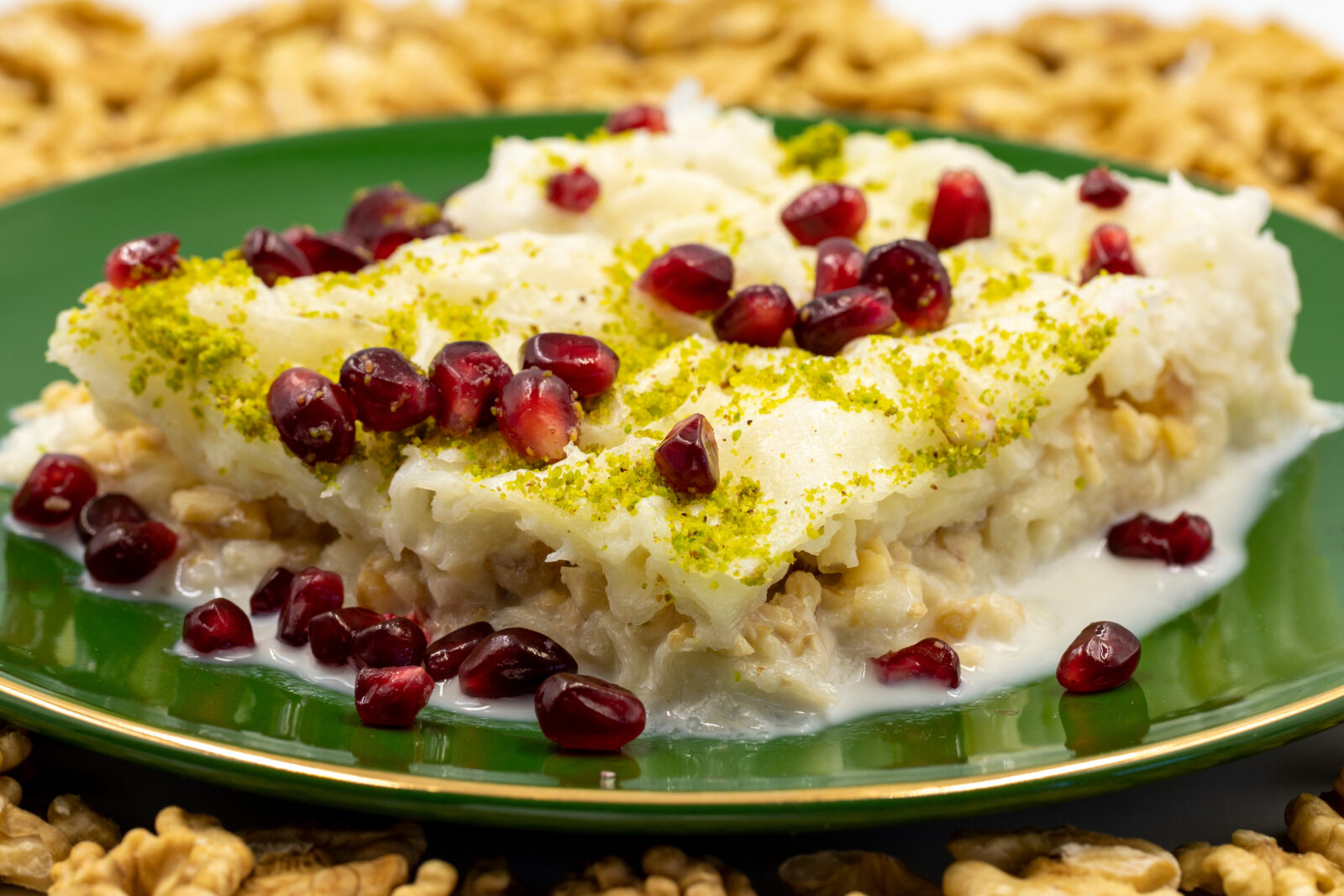
No Ramadan in Türkiye is complete without the dessert gullac. This light, milk-based dessert made from thin layers of starch-based pastry, pomegranate seeds, and nuts dates back to the Ottoman palace kitchens. Its delicate texture and subtle sweetness make it a perfect post-iftar treat.
Another staple of Ramadan is Ramadan sherbet, a refreshing drink made from a mixture of fruits and spices. These drinks, once sold by street vendors carrying large ornamental jugs, were believed to aid digestion and provide hydration after a long day of fasting.
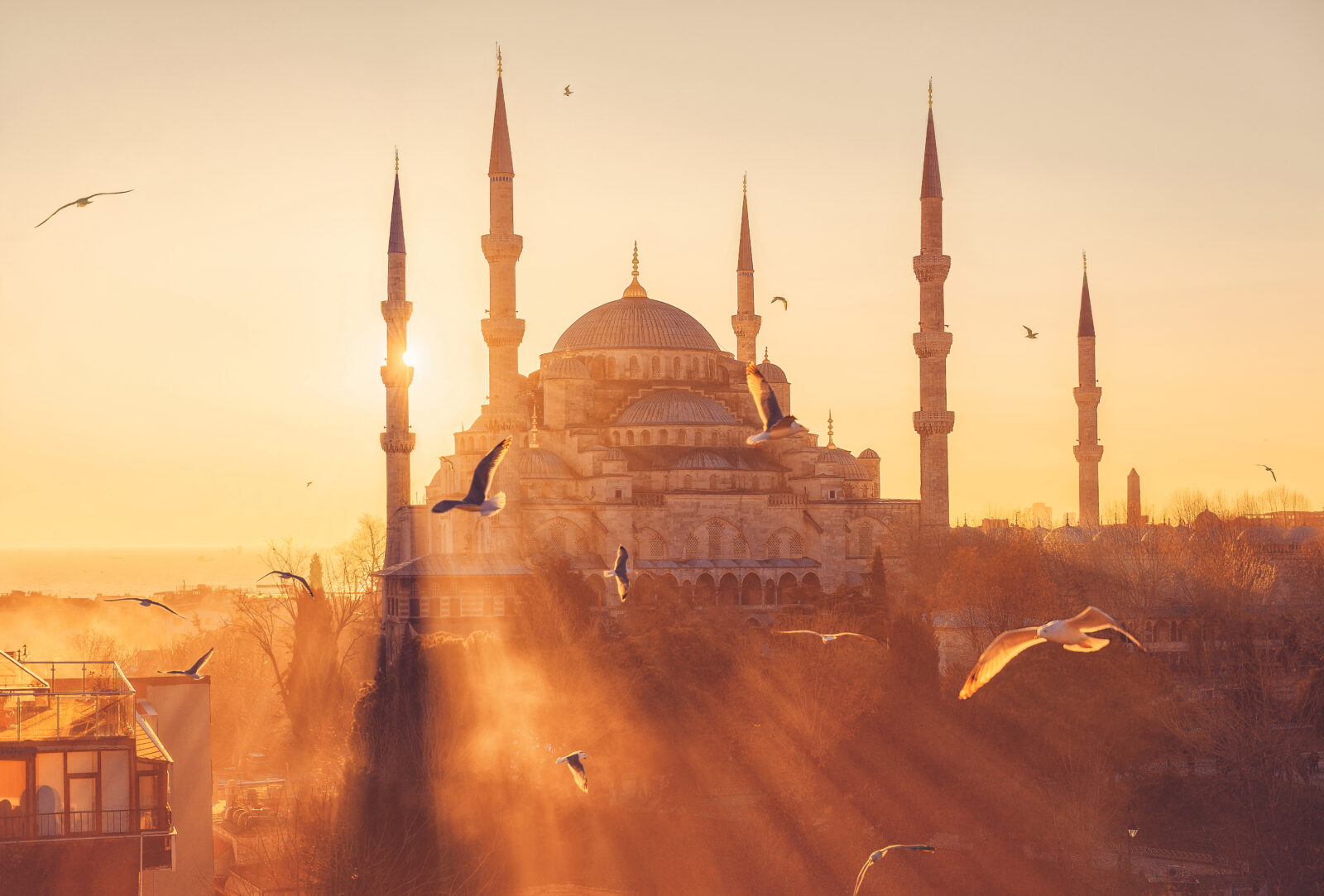
Many of these traditions, from sahur drummers to Ramadan markets, continue to be an integral part of life in Türkiye. While some customs have changed over time, their essence remains the same.
Ramadan is still a time for gathering with family and friends, sharing meals, and engaging in acts of charity. The balance between religious devotion, cultural customs, and social engagement makes Ramadan a defining month in Türkiye’s calendar, bringing people together in meaningful ways.